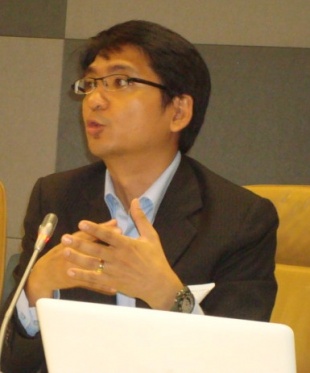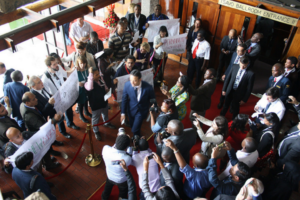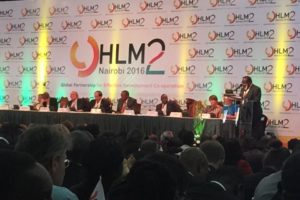NEW YORK, March 27 (IBON) — Civil society organizations (CSOs) and some government delegates, who are attending preparatory events this week for the United Nations’ upcoming Rio+20 conference in June, criticized attempts by a few powerful parties to weaken references to human rights obligations in the negotiating text.
[[{“type”:”media”,”view_mode”:”media_large”,”fid”:”77″,”attributes”:{“alt”:””,”class”:”media-image”,”height”:”373″,”style”:”font-size: 12px; width: 310px; height: 373px; margin: 10px; float: right;”,”typeof”:”foaf:Image”,”width”:”310″}}]]
The first reading of the “zero-draft” negotiation document for the UN Conference on Sustainable Development (UNCSD) in Rio de Janeiro is set to take place this week, as part of formal and informal processes leading up to an outcome document in Rio itself, which most expect to define more clearly the pathways to sustainable development in the next decades.
At a side event organized by IBON International and Both ENDS on March 21, CSO representatives and some government ministers warned that removing or weakening human rights safeguards in the said zero draft would leave out marginalized sectors and vulnerable groups from the Green Economy or leave them worse off.
As Rene Orellana, Chief Negotiator of the Plurinational State of Bolivia to the UN, recalled: “The direct cause of the water wars that started in 2005 in Cochabamba in Bolivia was the attempt by the government to privatize water resources. This is precisely what is happening now in the Rio+20 process: private access and control and property over natural resources is being prioritized in the discussions.”
Anil Naidoo, Coordinator of the Council of Canadians’ Blue Planet Project, warned: “The rights language is being scrubbed off from the international discussions about sustainable development. If they succeed to get the human right to water out of this text, than a precedent has been shaped for every future negotiation. Is the Green Economy going to be a Trojan horse for the commodification of nature?”
Helga Serrano, Adviser Ministerio Coordinador de Patrimonio de Ecuador, stressed that “we need to reaffirm the sustainability agenda which has a rights-based approach and we cannot come back on what we already agreed upon.”
The panelists at the side event titled “Rights for Sustainability and Sustainable Development Governance” also conveyed inspiring messages to the audience composed of civil society, members of government delegations, students and faith-based organizations.
Ms. Serrano discussed how Ecuador has since 2007 gone through a reform process based on a new constitution that adopts the principle of Buen Vivir or living in harmony with nature. “Ecuador will bring the concept of Buen Vivir to the Rio+20 process,” Serrano said, adding that Ecuador stresses the importance of the Rights of Nature that starts off from a recognition of the limits of nature. She also stressed the need for a new global economic order and a new financial architecture.
Dr. Orellana of Bolivia also explained that in his country, the right of the environment to water is introduced in the Bolivian constitution. The human right to water in Bolivia is interpreted so that customary laws govern the use of water, he said. This implies that peasants and communities collectively manage the natural resources of Bolivia, he added.
Joseph Foti, Senior Associate at the World Resources Institute, spoke about Principle 10 of the Rio Declaration pertaining to access to information, public participation and access to justice on environmental matters. He noted that, “There has been a lot of progress since 1992 with a near-universal adoption of legislation on public participation rules for Environmental Impact Assessments.” He noted, however, that actual implementation still poses challenges, particularly in terms of the equitable application of these principles. For instance, how can Principle 10 work for poor people saddled by illiteracy and who cannot readily afford participation in terms of time and resources, he noted.
Mari Pitkänen, First Secretary of the Permanent Mission of Finland to the United Nations, stressed that the dialogue between civil society and governments needs to be improved in order to achieve substantial gains.
Quintos of IBON International said the side event was a fruitful exchange between civil society and governments, helping forge greater unity in defense of rights for people and the planet. ###
__________________________________________________________
[For details about the Rights for Sustainability or R4S Initiative, please contact Paul Quintos of IBON International ( pquintos@iboninternational.org ) or Nathalie van Haren of Both ENDS ( nh@bothends.org ).]



